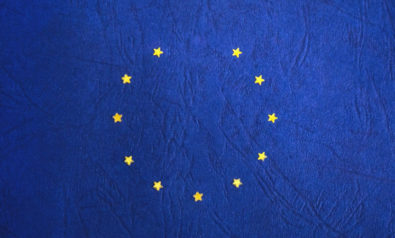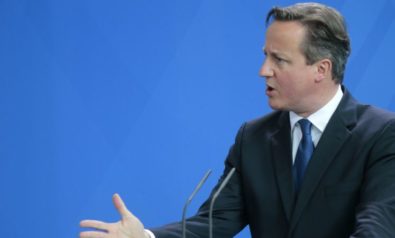Will Brexit negotiations be over before the 2020 general election? Former Prime Minister John Bruton explains.
The next general election in the United Kingdom will take place in 2020. If the Article 50 notice is served in 2017, it is possible that the process of UK withdrawal from the European Union (EU) will not be concluded before the election. That might allow the UK electorate to take a second look at their decision on June 23 to leave the EU.
The Article 50 process, once activated, proceeds according to paragraph 2 of Article 50. The mechanics of the negotiation are set out in Article 218 (3), which governs the making of international agreements by the EU. It provides for the negotiation to be done by the European Commission, subject to directives from the European Council.
A key phrase in Article 50 is that the withdrawal negotiation would be conducted “taking account of the future framework of its relationship” with the country leaving the EU. In other words, the withdrawal would take place within a wider framework, which would also be agreed between the EU and the UK.
So, there would be two parallel processes: a negotiation of a framework regarding the future relationship with the UK; and the withdrawal negotiation itself.
Trade Talks
In effect, the two negotiations would be linked. This is different from what EU Trade Commissioner Cecilia Malmström said recently. She stated that the broader negotiation could not take place until after the withdrawal agreement with the UK was concluded and, therefore, till that country was officially outside the EU.
Her interpretation seems to be contradicted by the words of Article 50 because it ignores the fact that the reference in Article 50 is to a broader framework agreement. If the formal withdrawal arrangement under Article 218 (3) has to be subject to a wider framework being agreed, the whole process could take a very long time indeed, and meanwhile the status quo would continue until both agreements are completed and ratified.
The withdrawal part could be quickly agreed, but the future framework would be much more difficult and could drag on and on, because it would have to cover all sorts of knotty trade and regulatory issues that could not be settled on the basis of generalities.
That is assuming the UK does not join the European Economic Area, which would simplify these “framework” issues. It also assumes unanimous consent in 2019 of the remaining 27 EU members to extend the two-year withdrawal period, but that should not be impossible
Of course, this requires the UK not to derail the process by unilaterally breaching the treaties by failing to implement EU law during the negotiations—e.g., by immigration controls or repealing some EU legislation on working hours.
It assumes that the UK would be willing to stay in a “half in/half out” position for a long time, without enjoying the supposed benefits of withdrawal, but with its influence in the EU diminished.
The UK should have probably given more thought to these complexities before triggering a referendum. But the complexities do allow time for reconsideration—assuming there is, at some point in the next three years, a political willingness to reconsider in the UK. That does not look likely now, but moods can change.
The UK has a big balance of payments deficit already—Brexit or no Brexit. The inevitable unwinding of that deficit will reduce economic growth, which normally would also reduce immigration. So opinion may be different in 2020.
That said, other EU countries must prepare their economies on the assumption that a full Brexit will happen.
The views expressed in this article are the author’s own and do not necessarily reflect Fair Observer’s editorial policy.
Photo Credit: Xavier Arnau
 We bring you perspectives from around the world. Help us to inform and educate. Your donation is tax-deductible. Join over 400 people to become a donor or you could choose to be a sponsor.
We bring you perspectives from around the world. Help us to inform and educate. Your donation is tax-deductible. Join over 400 people to become a donor or you could choose to be a sponsor.
Support Fair Observer
We rely on your support for our independence, diversity and quality.
For more than 10 years, Fair Observer has been free, fair and independent. No billionaire owns us, no advertisers control us. We are a reader-supported nonprofit. Unlike many other publications, we keep our content free for readers regardless of where they live or whether they can afford to pay. We have no paywalls and no ads.
In the post-truth era of fake news, echo chambers and filter bubbles, we publish a plurality of perspectives from around the world. Anyone can publish with us, but everyone goes through a rigorous editorial process. So, you get fact-checked, well-reasoned content instead of noise.
We publish 2,500+ voices from 90+ countries. We also conduct education and training programs
on subjects ranging from digital media and journalism to writing and critical thinking. This
doesn’t come cheap. Servers, editors, trainers and web developers cost
money.
Please consider supporting us on a regular basis as a recurring donor or a
sustaining member.
Will you support FO’s journalism?
We rely on your support for our independence, diversity and quality.

































